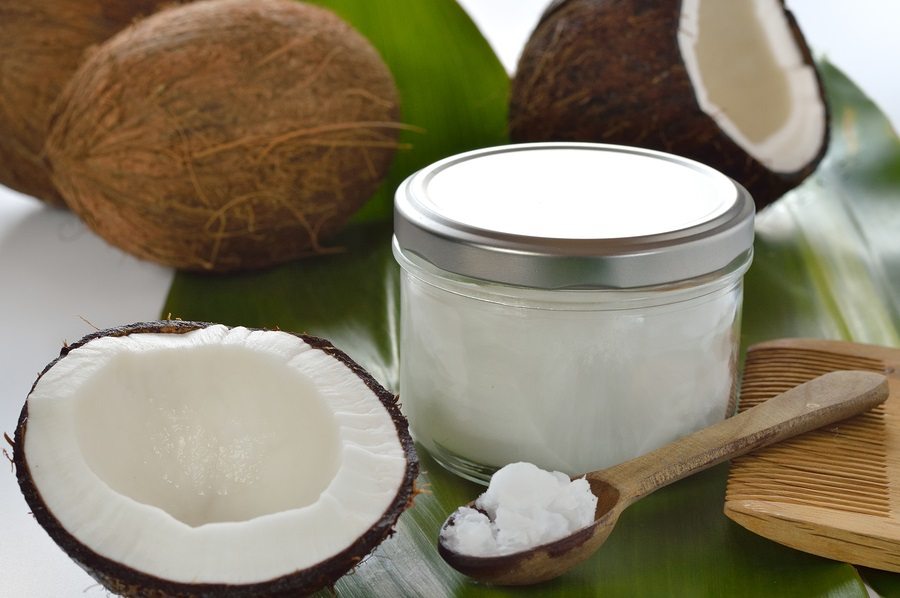
Coconut oil should be part of a diet to control blood sugar and diabetes.
by Brian Shilhavy
Coconut Oil Effective in Treating Diabetes
Indeed Virgin Coconut Oil has a substantial effect on blood sugar levels. My wife and daughter (both have type 2 diabetes) measure their blood sugar levels at least three times a day. When they eat the wrong foods and their blood sugar levels get to 80-100 points above normal, they don’t take extra medication, they take 2-3 tablespoons of the coconut oil directly from the bottle. Within a half hour their blood sugar levels will come back to normal. Ed, Coconut Diet Forums
Diabetes Epidemic
25.8 million children and adults in the United States, 8.3% of the population, have diabetes.1 The current rate of people becoming diabetic in the United states is doubling every 10 years. This has resulted in a windfall for pharmaceutical companies capitalizing on this “disease” with drugs designed to treat type 2 diabetes, but not deal with the underlying cause. These drugs have serious side effects.
One of the most popular diabetes drugs, Avandia, was pulled off the market in 2011 after a number of studies showed that the drug increased the risk of heart attacks among type 2 diabetes patients. The manufacturer of the drug reached a $3 billion settlement in December 2011 over its fraudulent marketing of the drug, the largest federal criminal drug-company settlement to date.
Coconut Oil and Type 2 Diabetes
Information that is finally making its way into the mainstream media is that type 2 diabetes is a lifestyle and diet issue that can be reversed without drugs. This information has been known for years, however, among those in the alternative health crowd. Consider these testimonials (some over 10 years ago) from individuals who did not follow typical doctor’s advice:
I also wanted to pass along a bit of my experience in regard to diabetes. I have been taking Coconut Oil (CO) since about the end of February of this year. I first started cooking with it and replacing the vegetable oils in my home. Then I started taking it by the spoon as well, about 2 tablespoons daily around the first of March.
I was diagnosed as a type 2 diabetic in July of 2001 and immediately put on the Amaryl RX (1 in am and 1/2 in the pm.) I have been looking for a way to reverse this condition since diagnosed. I have found a world of info out there on various supplements and diet, BUT not from my doctor who just said “welcome to the club” and told me to take my meds. (I was crying and he seemed happy!)
He also sent me to a nutritionist to take diabetic classes. Fortunately, I had already learned enough on my own to know that A LOT of what they are teaching is NOT correct and their recommendations are NOT what you want to do UNLESS you want to further the condition, NOT improve or reverse it.
Bottom line is this. I have been able to slowly remove myself from the RX and now control my blood sugar by diet, supplements and with CO! Cool, huh? I do still check my blood sugar levels once or twice daily… and they are as good and usually BETTER than when I was on the Amaryl RX! And I have been off the RX since the end of March of 2003. I was taking several supplements for a year or so before CO but still had to take the RX. It wasn’t until I removed most of the vegetable oils (all of them at home and careful when out to eat) and added the CO that I noticed I was beginning to crash while on the RX at different times during the day… so I would cut down on the RX and still maintain good blood sugar levels. Gradually I was NOT taking the RX anymore!!! Hope this may help someone and God Bless all… Sharon, Coconut Diet Forums
I’ve been diagnosed as Type II Diabetes and have been struggling with a wildly fluctuating blood sugar level for two years. I’ve used diet, exercise, herbs and vitamins in my attempts to stabilize my levels, with limited success. My MD wanted to put me on prescription meds, but I resisted based on reports I’d read about the long-term side effects of those drugs.
One day reading a newsletter, I ran across an article mentioning that Coconut Oil was used to regulate blood sugar levels. So on November 7, 2003, I ordered 2 quarts of the Virgin Coconut Oil. I began taking one tablespoon a day at dinner. My yearly blood test was done on January 2, 2004. When I saw my MD on January 13, 2004, he was pleased to see that my blood sugar levels were now in the normal range, and told me that they’d been that way for a few months. I was ecstatic! I’ve been using Tropical Traditions Coconut oil since, and my blood sugars have stayed in the normal range ever since. Thank you so much for making such a wonderful, healthy food source available to us! Beth, Coconut Diet Forums
Restricting refined sugar, refined carbohydrates, and alcohol from one’s diet, while increasing healthy saturated fats and protein, can reverse type 2 diabetes. Even the mainstream media is starting to report that type 2 diabetes is reversible through diet.2
Replacing longer chain polyunsaturated fats, such as corn and soybean oil, with the saturated fat of coconut oil, can reduce cravings for refined carbohydrates that contribute to insulin resistance. Consider Dr. Mark’s testimony:
As a physician of many diabetics, I am constantly telling them how to eat more healthily but was unable to follow my own advice. I knew WHAT to do, but feeling like I had the wherewithal to practice what I preached was a different matter! I knew my patients didn’t take my advice seriously enough, since I wasn’t treating my own body right and was clinically “morbidly obese”. My hunger and cravings have been my downfall for years leading me to donuts, cookies and other unhealthy foods I knew to stay away from. I was constantly hungry. When I heard that adding [healthy] oils like Tropical Traditions Virgin Coconut Oil could help satisfy my run-away hunger and cravings, I was skeptical. I knew if it could help even ME, then there would be something to the claims! No one was more surprised than me when I felt satisfied for hours after spreading some on my morning toast, or enjoying a tablespoon in my oatmeal. My wife loves to make our family sugar free chocolate balls using this wonderful oil, and I am still amazed that something so delicious is actually good for me! I have more energy, been able to exercise for longer periods of time, and have now lost 36 pounds! Mark -an M.D. in New Mexico
Coconut oil’s ability to control hunger and cravings is well documented. Coconut oil’s medium chain fatty acids promote thermogenesis and lead to increased metabolic rates. For more info, see this article on weight loss.
Population studies of societies that consume much of their calories from the saturated fats of coconut oil show that diabetes is very rare. A study done in India in 1998 showed that when Indians abandoned traditional fats like ghee and coconut oil, and started using polyunsaturated fats like sunflower or safflower oils, that the rates of diabetes became alarmingly high.3 Studies carried out in many South Pacific Island countries have revealed the same thing: when the traditional diet high in coconut oil is abandoned in favor of more modern foods that are highly processed, including polyunsaturated vegetable oils, there is a direct increase in the rate of diabetes and other western diseases.
A study done in 2009 at the Garvan Institute of Medical Research in Australia by Dr. Nigel Turner and Associate Professor Jiming Ye demonstrated that a diet rich in coconut oil protects against ‘insulin resistance’ (an impaired ability of cells to respond to insulin) in muscle and fat.4 A diet rich in coconut oil, which is high in medium chain fatty acids, also avoids the accumulation of body fat caused by other high fat diets of longer chain fatty acids of similar calorie content. These findings are important because obesity and insulin resistance are major factors leading to the development of Type 2 diabetes.
A study was conducted in 2010 “to study the effect of saturated fatty acid (SFA)-rich dietary vegetable oils on the lipid profile, endogenous antioxidant enzymes and glucose tolerance in type 2 diabetic rats.” The study concluded: “The type of fatty acid in the dietary oil determines its deleterious or beneficial effects. Lauric acid present in coconut oil may protect against diabetes-induced dyslipidemia.”5
My husband is type 2 diabetic and we believe the use coconut oil has greatly helped in his control of blood glucose. With a very low carbohydrate diet, and cooking only with coconut oil he has been able to reduce his prescription drugs to the very lowest amount. Hopefully he will be able to eliminate them all together and control his diabetes with just diet. Suzan, Coconut Diet Forums
Coconut Oil and Type 1 Diabetes
While type 2 diabetes is related to diet and lifestyle, type 1 diabetes is an autoimmune disease that shuts down your body’s insulin production. But we are seeing good testimonies in coconut oil’s ability to control type 1 diabetes as well:
The Virgin Coconut Oil also is helping with my diabetes. I have type 1 juvenile diabetes and take insulin. I’ve had ups and downs with my control through the years and I’ve ALWAYS struggled with cravings for sweets and carbohydrates. The Virgin Coconut Oil has helped with my control (I’ve noticed more stability) and it has alleviated some cravings. It has not completely alleviated cravings, but I’ve noticed a decrease. People with diabetes often crave high-glycemic foods (that we should stay away from!) due to cravings caused by blood sugar swings. The Virgin Coconut Oil has helped a lot in this area! I’d recommend it to anyone with diabetes. Diabetes can cause low moods & low energy levels, and I’ve noticed a positive increase/lift in both. Megan, Coconut Diet Forums
A study done in May 2009 suggests that the medium chain fatty acids found in coconut oil can improve brain function in type 1 diabetes. The study concluded: “Medium-chain triglycerides offer the therapeutic advantage of preserving brain function under hypoglycemic conditions without causing deleterious hyperglycemia.”6 Other recent research is showing that neurological disorders such as Alzheimer’s should be classified as “type 3” diabetes.7 Coconut oil works well with type 3 diabetes as well. See our article on Alzheimer’s here.
In January 2011 Rogier Donker wrote about his experience with type 1 diabetes, his dependency on the drug Humalog, and how Virgin Coconut Oil helped reduce his dependency on this drug:
Of Virgin Coconut Oil. From a skeptic’s point of view!
I first learned about virgin coconut oil when I was reading a book about giving massages. The author recommended VCO as a very good massage oil, so I went out and purchased some.
A search on the Internet brought up all kinds of (other) information and I got myself a general education about VCO. Good for a multitude of things that might ail a person, I was intrigued to the point of wanting to learn more…
I read about how VCO could reduce one’s belly fat, could change the dependency on insulin for diabetics and a host of other things. Being a type1 diabetic due to an injured pancreas I have to take 34 units of Humalog (an insulin mix) twice daily. When I read that VCO could restore some of the pancreas’ insulin production capabilities, I decided to run an experiment. I have nothing to lose and everything to gain.
I started ingesting VCO by the teaspoon on January 1st 2011. As the first week of the New Year progressed I started eating VCO on toast, in my cereal and by the spoon full. All week my glucose levels seemed to be getting lower than what I was used to, but I kept shooting myself with the prescribed 34 units of Humalog morning and evening.
On Friday January 7th my morning glucose was 104. I had my usual breakfast: 1 boiled egg and two slices of raisin bread toast with VCO spread and my shot of Humalog. Ellen had noticed that my energy level was higher than normal all week and that I seemed to have lost some weight as my pants “were falling down”.
We had a normal lunch on that Friday: grilled cheese sandwich, mine made with coconut oil. Dinner was also normal: baked pork chops, fried (in olive oil) potatoes and apple sauce, glass of milk. Just before dinner I checked my GL and it was 142, so I shot myself, as per usual, with 34 units of Humalog as I was about to eat dinner and ingest food…
An hour after dinner I got the shakes, started sweating like a dog and experienced the unmistakable signs of “crashing”. Ellen rushed to the kitchen got some OJ and my testing kit. My GL was 55! Say what? Impossible! It took a couple of glucose tablets, orange juice and some chocolate and after a half hour the “crash” signs diminished and I was back to normal. It was a rather scary experience as I’ve only crashed a few times in the last five years and never as violent as this last time. We went to bed at eleven that night and just before bedtime my GL was 113. Sleep tight!
Saturday morning January 8th I woke up with a GL of 102. Decided NOT to inject any Humalog, had my breakfast and went on with the day. The bathroom scale revealed that I had indeed lost a couple of pounds. Saturday evening, just before dinner my glucose level was 141. Remembering what happened the night before, I made the decision (with Ellen’s blessing) to shoot myself up with only 10 units of Humalog. Dinner was served. Later that evening Ellen and I shared an apple and just before we went to bed my glucose level was 117. All along I am ingesting VCO, by now about a tablespoon a day. Sunday morning the GL was 110 and I decided again to NOT shoot up.
Sunday night the GL was 138, again I did not partake of any Humalog. It is now January 15th and I have not taken ANY Humalog for six days, glucose levels appear to be below 130 and I feel TERRIFIC! The bathroom scale indicated this morning that I lost another pound and that weight loss is now visible in the belly region. Blink the Humalog, bring on the VCO! Through a mix-up at the Diabetes Care Club I ran out of test strips (to test my GL) on Monday the 10th. The last time I was able to check my GL it was 127 and I felt terrific.
It is now Sunday, January 16th 2011. I have not taken any Humalog or been able to test myself since Monday morning on January 10th. I’m ingesting VCO at the rate of about a tablespoon a day. I still FEEL terrific! My stamina has improved, I have more energy and have lost 6 pounds! I cannot wait to receive test strips from the Diabetes Care Club, my gut says that I will be testing within normal limits…. Can’t wait to PROVE it!
It’s Monday January 17th. I did my breakfast: two slices of wheat walnut raisin bread, a boiled egg and just because it NEEDED ? to be eaten, half a cinnamon roll. Washed it all down with three cups of coffee, each cup with a half a teaspoon of sugar and some half and half. Went to work- full of energy and get-up and go. At eleven o’clock I thought: I’d better go to the house for a mid-morning snack. UPS delivered the test strips just as I was walking to the house. OK… here we go… testing one, two, three and prick….beep-beep….drum roll: 113!! Talk about feeling GOOD!!
Just for the heck of it I pushed the buttons on my tester and found:
My seven day average was 113…
My fourteen day average was 128 (that’s two weeks on VCO, the first week with 68 units of Humalog each day, the next week NO Humalog…)
My thirty day average was 134….
Since I tested 113 I nibbled on a large dried fig that my friend sent from Turkey. As soon as I ate that fig I tested myself again: 133 …. Back to work! Ask me if I feel healthy! So far I lost seven pounds and the last time I felt this energetic was before the pancreatitis of nine years ago….
It is now Wednesday January 19th 2011
Yesterday Ellen and I went to Carmel to repair a kiln. Just before lunch I started sweating a bit and felt a little “high” and sure enough when I tested myself my GL was 210. Better take a little bit of Humalog. 10 units. No problem at all! The coconut oil, overall is making a huge difference. I test myself three or four times a day and can tell when I’m low and when I’m high. I take Humalog as needed but no where near the 68 units I was taking before I started on the coconut oil! I still feel terrific and it appears I am still losing weight.
Sunday January 23rd 2011
My system must have gotten used to the coconut oil and the much smaller amounts of Humalog I am now taking. On average I ingest a table spoon of VCO and 10 units of Humalog per day and STILL feel terrific! As of today my seven day average was 146, fourteen day average 145 and my thirty day average was 139…
FEELING GOOD!! Rogier, Coconut Diet Forums
Coconut Oil and Type 3 Diabetes
Recent research has shown that Alzheimer’s Disease is a problem with insulin production, and is now being referred to as “type 3 diabetes.”
This is perhaps one area where coconut oil has seen the greatest success in treating diabetes, as people are reporting compete reversal of effects in some cases among those suffering from Alzheimer’s Disease. See:
New Alzheimer’s Drugs Continue to Fail Where Coconut Oil Shines
Coconut Oil a Model for Diabetes Drugs
As the word about coconut oil’s effectiveness in combating diabetes gets out, it is only natural that the drug companies will try to mimic the effects and come up with new drugs, since coconut oil cannot be patented, as it is a natural food. A study done in 2011 on capric acid, one of the medium chain fatty acids found in coconut oil, found that this “natural fatty acid can serve as a regulator of blood sugar levels, which may have important applications in designing better and safer drugs for diabetes treatment.”8
Given the pharmaceutical industry’s track record and criminal convictions, however, it might be best to stick with pure Virgin Coconut Oil.
References
1. American Diabetes Association, http://www.diabetes.org/diabetes-basics/diabetes-statistics/
2. “Reversing Diabetes is Possible,” by Val Willingham, CNN – January 28, 2011
3. Sircar S, Kansra U. “Choice of cooking oils–myths and realities.” Journal Indian Medical Association. 1998 Oct;96(10):304-7.
4. Kochikuzhyil BM, Devi K, Fattepur SR. “Effect of saturated fatty acid-rich dietary vegetable oils on lipid profile, antioxidant enzymes and glucose tolerance in diabetic rats.” Indian J Pharmacol. 2010 Jun;42(3):142-5.
5. Enhancement of muscle mitochondrial oxidative capacity and alterations in insulin action are lipid species dependent: potent tissue-specific effects of medium-chain fatty acids. Diabetes. 2009 Nov;58(11):2547-54. Article here.
6. Page KA “Medium-chain fatty acids improve cognitive function in intensively treated type 1 diabetic patients and support in vitro synaptic transmission during acute hypoglycemia.” Diabetes. 2009 May;58(5):1237-44.
7. “Insulin: Predictor for Alzheimer’s?,” by Fernanda Barros, Ivanhoe Health Correspondent, April 13, 2011
8. “Van Andel Institute study may lead to better, safer drug for diabetes” 21-Nov-2011
About the author: Unlike many people who write about coconut oil by simply reading about it, Brian Shilhavy actually lived in a coconut producing area of the Philippines for several years with his family, observing firsthand the differences between the diet and health of the younger generation and those of his wife’s parents’ generation still consuming a traditional diet. This led to years of studying Philippine nutrition and dietary patterns first hand while living in a rural farming community in the Philippines. Brian is the author of the best-selling book: Virgin Coconut Oil: How it has changed people’s lives and how it can change yours!
Read the Virgin Coconut Oil eBook on Your Mobile Device!




 The FDA has NOT Banned Trans Fats! Traditional Saturated Fats like Coconut Oil Continue to Shine for Alzheimer's Disease but are Condemned by U.S. Dietary Advice
The FDA has NOT Banned Trans Fats! Traditional Saturated Fats like Coconut Oil Continue to Shine for Alzheimer's Disease but are Condemned by U.S. Dietary Advice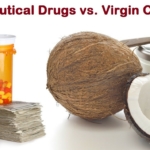 The Evidence of Coconut Oil's Superiority Over Drugs in Destroying Pathogens Continues to be Published in Peer-Reviewed Journals
The Evidence of Coconut Oil's Superiority Over Drugs in Destroying Pathogens Continues to be Published in Peer-Reviewed Journals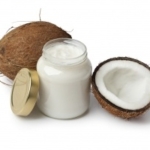 Study: Virgin Coconut Oil Protects Neuronal Damage and Mortality after a Stroke Incidence
Study: Virgin Coconut Oil Protects Neuronal Damage and Mortality after a Stroke Incidence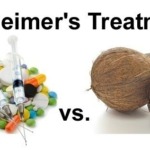 Another Phase 3 Trial Failure to Develop an Alzheimer's Drug Shows Why Virgin Coconut Oil is Needed to Prevent Dementia
Another Phase 3 Trial Failure to Develop an Alzheimer's Drug Shows Why Virgin Coconut Oil is Needed to Prevent Dementia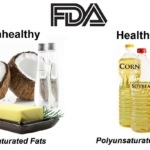 FDA Food Police want to Dictate What Foods are "Healthy" in New Guidelines Criminalizing Traditional Fats Like Butter and Coconut Oil
FDA Food Police want to Dictate What Foods are "Healthy" in New Guidelines Criminalizing Traditional Fats Like Butter and Coconut Oil